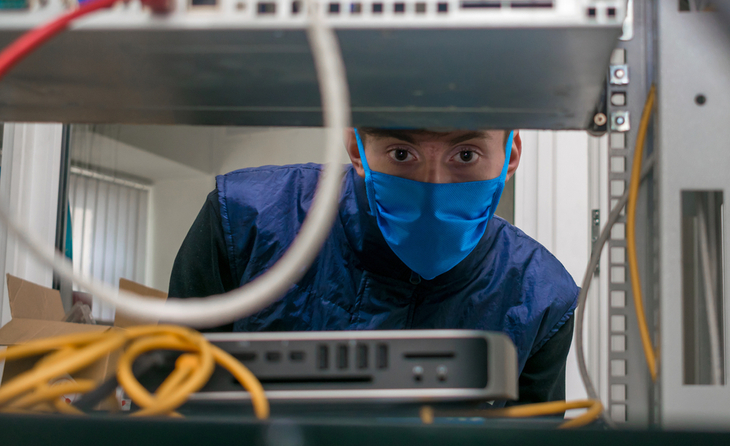The advent of a global pandemic has been a voyage of discovery for many. For some of Daisy’s business continuity customers, it included the realisation that having equipment on a physical disaster recovery contract is suddenly less appealing when you are trying to avoid contact with a widespread and deadly virus.
Steve Collins, a recovery consultant at Daisy, explains that, “It’s been a nervous time for us and our customers. When we visit customer sites, we’re at the mercy of how well that particular customer is following social distancing and personal safety measures.”
During the lockdown, several Daisy customers had the need to invoke their IT disaster recovery services. One such customer had suffered a major malware attack and was understandably wary when it came time for the Daisy engineer to deliver their replacement servers.
Steve recounts, “Having prepared the hardware overnight and driven three hours to deliver it by 8am Monday morning, the experience was a reality-check for me and our customer.”
“The exchange took place in the customer’s car park. The customer wheeled a pallet truck out and left it, I transferred the kit from my van to the pallet, and then the customer wheeled it away. Under normal circumstances, it would have been a more personal handover. On this occasion, on-site support was not required, so luckily there was no need to enter the customer’s offices. Instead of shaking hands we were shaking hand sanitisers and it all felt a bit clandestine.”
Les Price, Head of Availability Services at Daisy Corporate Services, said. “Physical IT disaster recovery services like shipping hardware to customer sites is perfect for localised events or malware. In that event, they need an uninfected server or storage unit that has not been compromised to build up from and kept separate from the infected network. Now there is an active virus that people can catch, it’s not the most desirable solution and a virtual recovery may be a better alternative, taking the human element and the risk of contamination, out of the equation.”
As the UK’s industry-leader in business continuity services, Daisy is able to offer a flexible solution to cover every scenario. Les continues, “Because we have comprehensive data backup and recovery services, a flexible virtual recovery platform with redundancy across multiple data centres and a nationwide physical network of recovery facilities, we can deliver data and compute power virtually or physically – depending on the nature of the invocation or the customer’s specific circumstances. This includes making offline, immutable data that is air gapped for separation, available not just physically but also via our cloud platforms.”
Because of COVID-19, we’ve realised that we can add more value for our customers by simplifying the way we offer our services at the point the contracts are signed. Under lockdown, customers who had traditional IT disaster recovery (ITDR) were wary as they had to have people to go to site to collect the equipment, would have to wipe it down thoroughly – or leave it for a period of time that might impact their recovery time objective. So now, we encourage new customers to consider all the ways they may need their data and services presented back to them, depending on the type of event that has occurred. Customers with traditional ITDR may not have considered prior to COVID-19, that they may need a virtual recovery option for that hardware.”
“COVID-19 has also led to a surge of interest in our eBackup services. Companies are realising that it’s better to get cloud backup services from Daisy – a known business recovery provider – rather than just a cloud services provider. We’re able to deliver much more in terms of flexible recovery options and better outcome.”
[ctaBanner] Click to find out more about our Business Continuity Solutions[/ctaBanner]
